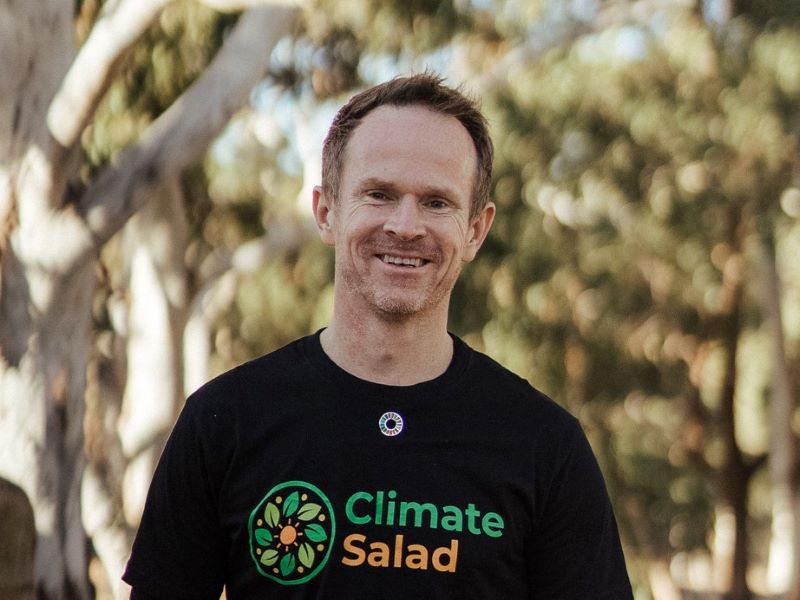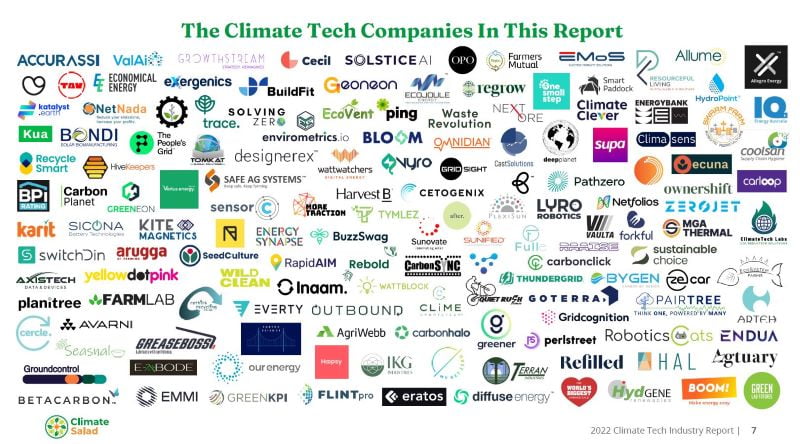Australia’s climate technology startups have created 4000 jobs and raised more than $1 billion dollars, according to an industry snapshot prepared by new community group Climate Salad. But the emerging sector needs to get better at measuring and conveying impact in a “softened” capital market to realise its ambitious plans.
On Tuesday, Climate Salad – a networking platform for climate tech investors and founders formed last year by advisor and investor Mick Liubinskas – released its first industry report based on a survey of what it considers climate technology companies.
Diverse respondents ranged from energy corporations and solar manufacturers to software firms and pest control companies, but are linked with a common goal of reducing, avoiding, or removing emissions, or mitigating effects of or adapting to a changing climate, or helping others to do so.

171 respondents reported $1.4 billion in capital raised in the last year, with a similar amount expected to be raised in the coming year. International investment accounted for half the money raised in Australia so far. 83 per cent of resspondent companies were at pre-seed or seed stage, while 17 per cent have raised Series A or B, the report said.
Its authors warn these raises would get harder because “the market has softened recently and we believe that despite the plans and confidence levels shown in this survey, it is likely to be more difficult for most companies to raise from here through to the end of 2023.”
Australia’s climate tech sector is also struggling to convey its impact, according to the report, because of complex climate issues, a range of impact frameworks and immature measurements of climate impact.
But the industry claimed significant potential growth. Nearly 40 per cent of the companies surveyed claimed to be developing entirely new climate technologies, and 28 per cent of respondents forecasted 500 per cent plus revenue growth in the next year.

Respondents also reported they expect to add 2000 new jobs in the next year to the 4000 created so far in climate tech in Australia, which has removed 1.414GT of carbon dioxide equivalent from the atmosphere.
The Australian climate tech sector wants to increase the emissions reduction 700-fold by 2030 and remove 988GT of carbon dioxide equivalent.
“All seven years of my daughter’s life have been the hottest year on record,” said Climate Salad co-founder Mick Liubinskas.
“I started Climate Salad with the 2030 mission to help 1,000 climate tech companies and have at least 10 become global successes.”
Main Sequence Ventures partner Phil Morle said the report shows “the Australian and New Zealand climate army gathering on the field”.
“As an investor, these are exciting times where there is no distinction between a decision to build something good for the planet and a decision that can generate the strongest returns,” Mr Morle said in the report.
“This is our job now and it is clear that venture-fuelled technology companies can deliver impact quickly.”
Do you know more? Contact James Riley via Email.
